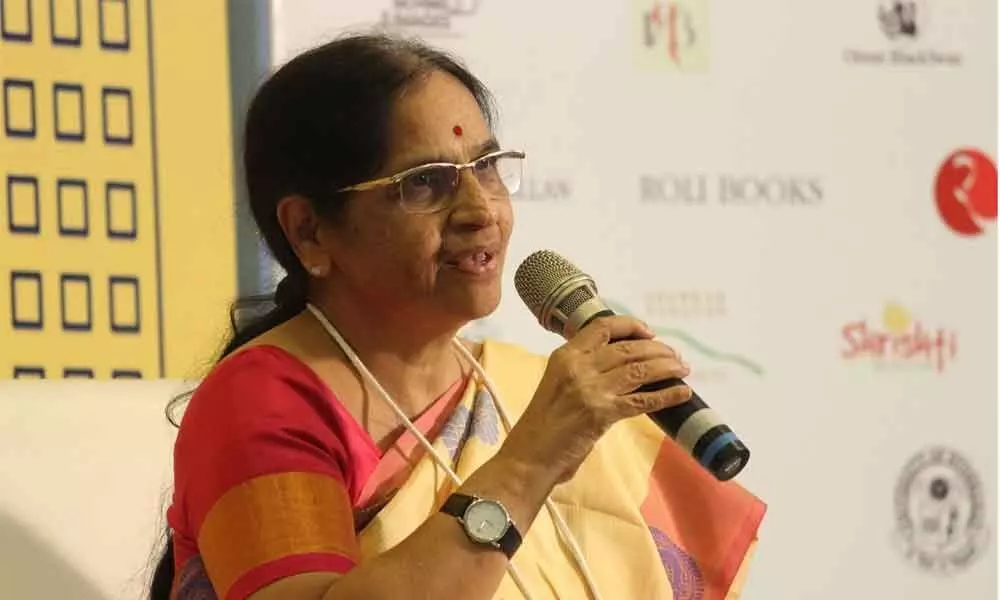Live
- Khammam: Granite industry in crisis
- Over Rs. 6 Crore Aid to Benefit 3,000 Families This Year: Dr K Prakash Shetty
- Berhampur: MKCG PG student assaulted
- TDR bonds will be issued to those hit by ‘master plan’: MLA
- Bhubaneswar: Woman abducted, freed
- Kendrapara: 17 held for fishing illegally
- Odisha seeks Regional Met centre in Bhubaneswar
- Odisha set to lead in farm reforms, says KV
- Metro Rail, Science City on the anvil in Dhenkanal
- 11 beneficiaries receive Rs.11.18L aid under CMRF
Just In
Hyderabad literary festival 2020: Volga, aka Popuri Lalitha Kumari says The Liberation of Sita author stresses on inquisitiveness


“Classical Telugu literature had a liberal tradition of questioning mythology,” says Volga, aka Popuri Lalitha Kumari. Her highly acclaimed work, ‘The Liberation of Sita’ garnered a lot of criticism from certain fronts, mostly threats to not tamper with ancient mythology.
Hyderabad: "Classical Telugu literature had a liberal tradition of questioning mythology," says Volga, aka Popuri Lalitha Kumari. Her highly acclaimed work, 'The Liberation of Sita' garnered a lot of criticism from certain fronts, mostly threats to not tamper with ancient mythology.
Volga has carried on with the inquisitive, thoughtful tradition of Telugu literature, showing Sita and other female characters from Ramayana. These characters are showed in a different light in their own perspectives by many scholars.
Ramayana does not tell us the woes of women like Ahalya, Surpnakha, Renuka Devi, Urmila, and many more. She understands that epics like Ramayana have been used by upper castes to subjugate women for several centuries.
As per Volga, all these experiences ultimately helped Sita to liberate herself from whatever she went through in the mortal world. However, it's also important to understand that a woman's liberation is not merely in her disentanglement from the material world, she says.
While spirituality is equally important, a feminist interpretation can also include a woman's life being stable and filled with contentment no matter what her experiences were in the very society that secludes her for being 'unchaste'.
Volga is responsible for introducing a feminist perspective in Telugu literature and political discords on her more than 50 publications which have been translated in all regional languages.

© 2024 Hyderabad Media House Limited/The Hans India. All rights reserved. Powered by hocalwire.com






